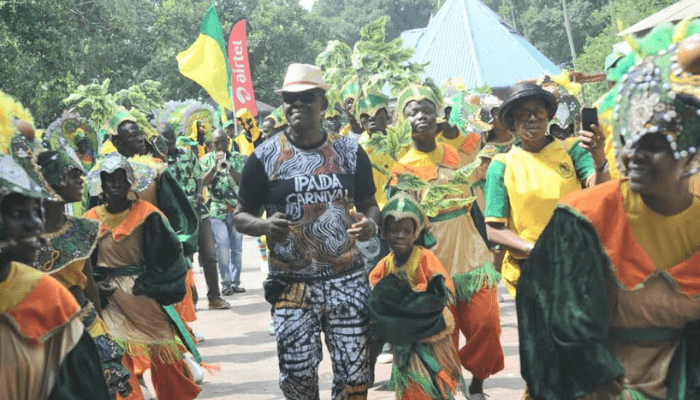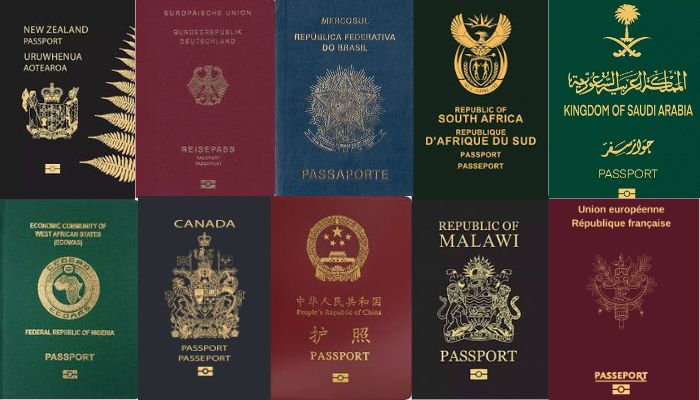It was a cool Friday morning with the sun rising unnoticed over the blue sky. As expected, Accra was alive with business and corporate activities that ushered in the day. Of course, motorists finding their way amidst light traffic, pedestrians, and hawkers alike were commonplace.
John Odonkor, our tour guide and driver of our 14-seater Toyota Hiace bus filled with tourists, used the light traffic interlude to explain the itinerary for the one-day Accra city tour.
“Welcome all. I have earlier told you my name, but I prefer to be called Jolly Man because it rouses the soft side of me. We are visiting seven tourist attractions in Accra starting with Kwame Nkrumah Memorial Park,” he said before the traffic light showed green.
As he drove on, he continued with his tour preliminaries and apparent induction of the tourists in the bus comprising two Nigerians, three South Africans, three Kenyans, one Briton, a Belgian, an American couple and a Gambian couple.
“Our last visit will be the coffin shops and galleries,” he said.
“No no! Why coffin shop?” the Gambian couple on honeymoon asked.
“Or do you mean coffee shop?” asked the Briton.
Putting his expertise to work to make the tour participatory, Jolly Man made the bus occupants to vote and the coffin shop was chosen as the first port of call.
After about a 10-munite drive across the city exposing its beautiful gardens, architectural masterpieces, well-paved roads, and driving past everyday people in the Ghanaian capital city, we arrived at Teshie, a suburb in Eastern Accra.
The main high street in the suburb hosts many fantasy coffin makers whose works speak volumes about their creativity, make death less important, and lay emphasis on the style one wishes to start his/her journey to the world beyond.
“Style is a major part of life in Ghana, so much so that Ghanaians take it to the grave. The coffin bears witness to our love for style,” said Jolly Man before entering one big shop.
As we entered the shop, we really did not see the coffins but beautifully-designed oversize boots, mini airplane, a human-sized chicken, a ship, different miniature flashy cars, among other objects.
“Where are the coffins?” Ade, one of the Nigerian tourists, asked.
“The coffins are before you. The oversize boot is a coffin for a diseased footballer, the mini airplane is for a dead pilot and so on,” Jolly Man explained.
The shop came alive with smiles and laughter of the tourists. They were genuine smiles because of the bespoke wooden caskets highly crafted and lovingly finished to transport the deceased on their journey to the afterlife.
¬Ý‚ÄúI am an engineer. So what coffin fits me?‚Äù A South African tourist asked.
“Master, we have spanner or helmet for you over there,” answered an apprentice in the shop.
And in case you are wondering why coffins and death are not treated with awe in Accra as is the case in most cultures, especially in Africa, Jolly Man explained that death is a very big celebration in Accra.
“When people die, we need to celebrate them for what they represent in their community and nothing is more befitting than a casket that tells the person’s profession while alive,” he said while leaving us in the hands of the shop owner to carry on.
In Ga culture (a tribe in Ghana), coffins are customised to represent the character or the occupation of the person who has passed away and would be buried in them, we were told by Pa Mensah, the shop owner who inherited the shop and runs it as family business.
Further down the coastal road regularly refreshed by sea breeze from the nearby Atlantic Ocean was yet another big coffin shop – The Kane Kwei Carpentry Works. The shop which has run as a family business since the 1950s is more of a showroom for a few of the best masterpiece coffins in Accra. Besides selling to Accra residents to bury their dead, Kane Kwei Carpentry Works has crafted coffins that featured in museums, festivals and commercials across the world.
Eric Anang, owner of the carpentry works, said the beautiful designs of the coffins were created out of their effort at thinking out of the box.
“It is a family business, but it took and still takes creativity and focusing to sustain the business since the late1950 when my grandfather established it,” he said.
It cost about GHC2,000 to get a customised coffin at Anang’s shop, he told us.
Also a little further on the road, Peter Kodjo, another coffin maker, was building a dove. A local leader who was peaceful had passed away and his family had asked Kodjo to build a coffin to match. He was smoothing the trunk of the dove-shaped coffin out of wood. The family paid GHC3,000 to fast-track the job. But the ease with which he did the job without attending ‚Äòformal art school‚Äô baffled the tourists.¬Ý
“I do not come from a family of coffin makers. I learnt under apprenticeship. I started when I was very young and I am happy that my master taught me the tools of the trade against his family’s wish,” Kodjo explained.
Before his explanation, one tourist asked him what coffin he wished to be buried in. Kodjo said wood plane machine.
Bearing in mind that I am a journalist, I asked Kodjo what coffin befits me, and he said, “An enormous biro, of course.”
“But I am not dying yet,” I said audibly.
However, one of the challenges the coffin makers face is dispute in death which often results in corpses staying more than necessary in the mortuary while the disagreement on the right choice of coffin to bury them rages.
“I had an issue once. A lawyer turned politician died and the family members were caught in-between making a Limousine coffin and a dictionary coffin. I finally made Limousine coffin after seven months of dispute,” Kodjo said.
This brought up an argument among the tourists. While some preferred Limousine, others insisted on dictionary coffin.
“You see, even tourists are arguing on the coffin of a man buried three years ago,” the coffin maker interjected.
To avert possible dispute on their choice of coffin at death, Jolly Man said most people now add their choice of coffin in their will or commission coffin makers while alive.
It took practical persuasions from our tour guide to move us out of the coffin shops to follow our tour itinerary.
“But you guys didn’t like the coffin tour at first. Why the interest?” he asked rhetorically.
“We were thinking of befitting coffins for ourselves,” a South Africa tourist said before we entered the bus and headed for Kwame Nkrumah Memorial Park.
“It is really not a big deal to die if one plans his afterlife while alive. At least one can decide the choice of casket,” the Briton said for the first time since the tour began.








